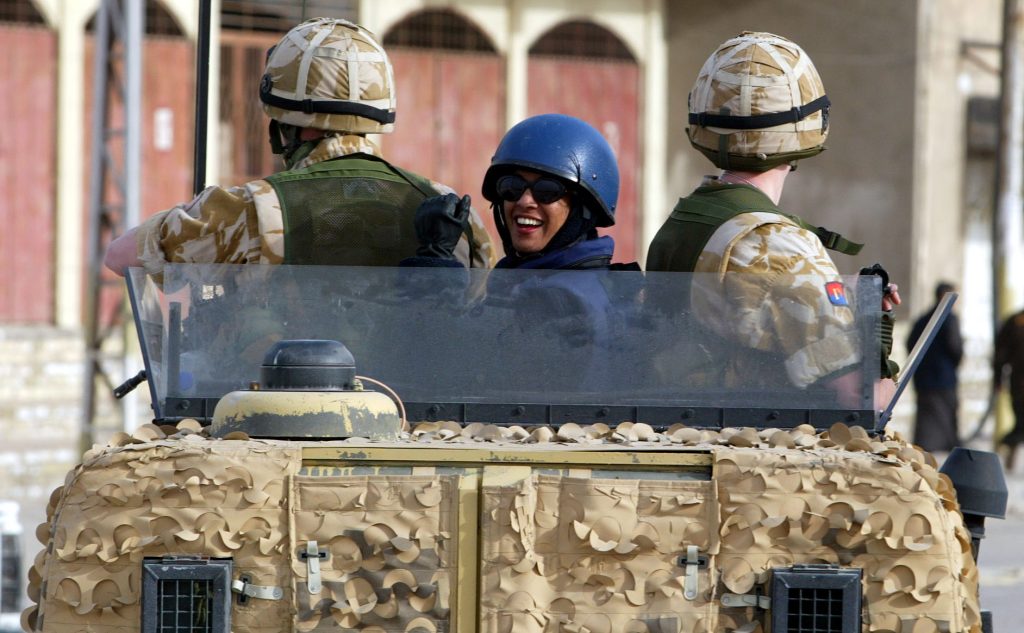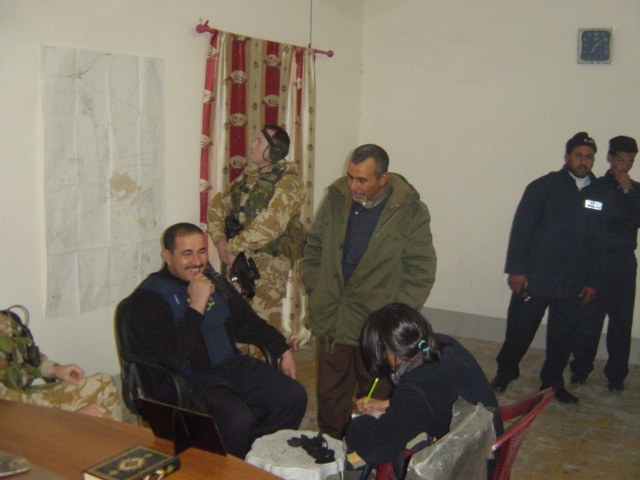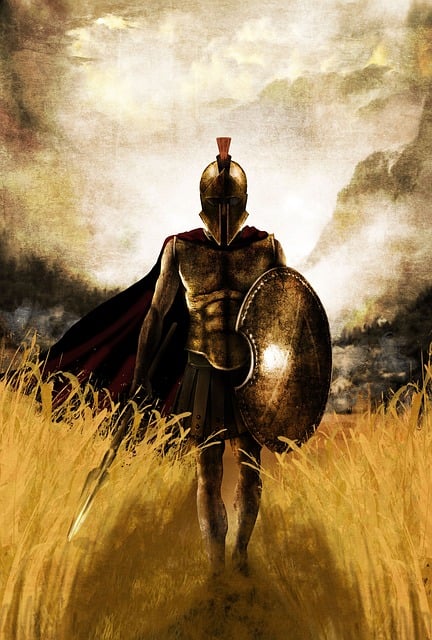I was at Iraq’s 1st election. How is next week’s exercise better?

In Basra, southern Iraq, with British troops

A police station in Az Zubayr, Iraq
It’s a coincidence, of course, but it feels significant that Iraq’s sixth election since the 2003 overthrow of Saddam Hussein and Baathist rule comes within days of Dick Cheney’s death.
Iraq’s parliamentary elections are on November 11. Cheney, considered one of the chief architects of regime change in Iraq, died on November 3.
I was in Iraq for the first post-Saddam election. I spent January 30, 2005, that first election day, mostly holed up in a police station in Az Zubayr city down in Basra in the south of the country. The UK ministry of defence had taken a flotilla of journalists to Iraq (including me, the London-based correspondent of The Times of India). It was, very possibly, an attempt to show the world the great gains brought to Iraq by the US and UK. What we saw instead was inflexible foreign military control and a local population that seethed at the presence of hordes of armed foreigners, ie the armies of faraway countries. Worse, those foreigners seemed to believe respect was due to them as a matter of course.
That first election day wasn’t marked by any great enthusiasm. The most vibrant conversation I had that day was with the Iraqi police officer I was interviewing – and the subject was a Hindi film star!
Next week’s Iraqi elections are, in no small measure, the result of efforts made by Cheney and his fellow neocons. There is little to suggest voter excitement. If anything, the ethnocentric political structure created for Iraq seems to entrench elites and leave many Iraqis, particularly the young, despondent.
It’s a testimony of sorts to Cheney’s work that when he died, aged 84, many Iraqis found it hard to muster even the conventional things we say about people who’ve passed. A Baghdad resident told the Associated Press news agency: “They destroyed us, and Dick Cheney specifically destroyed us. He was a bloodthirsty human”. Indeed, Cheney was a leading light of the neocon project that beat the drums of war and promoted the idea Iraq had supposed “weapons of mass destruction”. The vast project, marked by hubris, wrong-headedness and delusion, took a huge toll especially on Iraq and Iraqis.
As US-based Iraqi writer and academic Sinan Antoon told media outlets when news came in of Cheney’s death: “In another more just world, Cheney would have died behind bars, for all the war crimes he was responsible for. From the first Gulf War of 1991, when Iraq was bombed to the preindustrial age when he was secretary of defense, to the post-9/11 Orwellian policies of permanent wars of imperial terror that left millions dead and the normalisation of torture…If there is a hell, he belongs there.”
And in 2023, the 20th anniversary of the US invasion of Iraq, then Ohio Senator JD Vance wrote the following on social media:“The war killed many innocent Iraqis and Americans. It destroyed the oldest Christian populations in the world. It cost over $1 trillion, and turned Iraq into a satellite of Iran. It was an unforced disaster, and I pray that we learn its lessons”.
The US hasn’t, as yet, as is clear from the
Nearly a generation since the invasion, Iraq has unquestionably moved on and there is stability of sorts. But sadly, not the politics of hope. Not yet.





